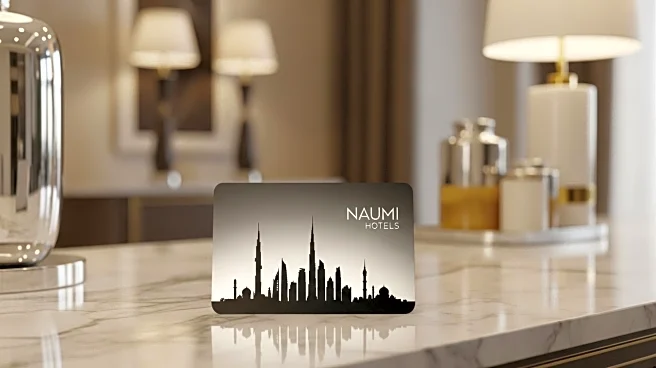What's Happening?
Singapore-based Naumi Hotels has acquired the former dusitD2 Kenz in Barsha Heights, Dubai, marking its first property in the Middle East. The hotel is strategically located near Dubai Internet City Metro
and major attractions like Mall of the Emirates and The Palm. Naumi Hotel Dubai will undergo extensive renovations to feature 237 rooms and suites, two restaurants, a spa, a rooftop pool, a fitness center, and meeting facilities. Established in 2007, Naumi Hotels is known for its bold design and personalized service, with properties in Singapore, New Zealand, Australia, and now the UAE.
Why It's Important?
Naumi Hotels' entry into the Middle East signifies the region's growing appeal to international hospitality brands. Dubai's strategic location and robust tourism infrastructure make it an attractive market for expansion. The acquisition aligns with Naumi Hotels' strategy to diversify its portfolio and tap into new markets. This move could enhance the brand's visibility and competitiveness in the global hospitality industry. The renovation and rebranding efforts may also contribute to Dubai's reputation as a luxury travel destination, potentially boosting local tourism and economic activity.
What's Next?
Following the acquisition, Naumi Hotels plans to transform the property into a modern, luxury hotel, enhancing its appeal to international travelers. The renovations are expected to be completed soon, with the hotel offering a unique blend of contemporary design and personalized service. As Naumi Hotels establishes its presence in the Middle East, it may explore further expansion opportunities in the region. The success of this venture could influence other boutique hotel brands to consider similar moves, increasing competition and innovation in the hospitality sector.
Beyond the Headlines
Naumi Hotels' expansion into Dubai reflects broader trends in the hospitality industry, where boutique brands are increasingly seeking opportunities in emerging markets. The focus on personalized service and bold design may cater to a niche segment of travelers seeking unique experiences. As the Middle East continues to develop its tourism sector, there may be cultural and ethical considerations regarding the integration of international brands with local traditions and values. The impact of such expansions on local communities and economies will be an area of interest for industry observers.









